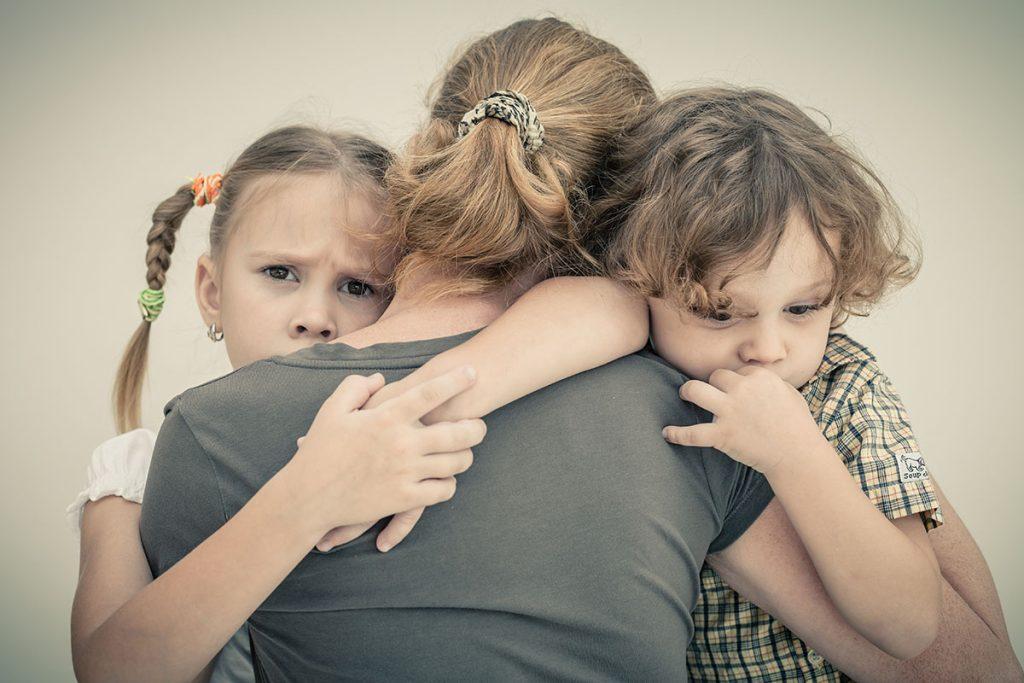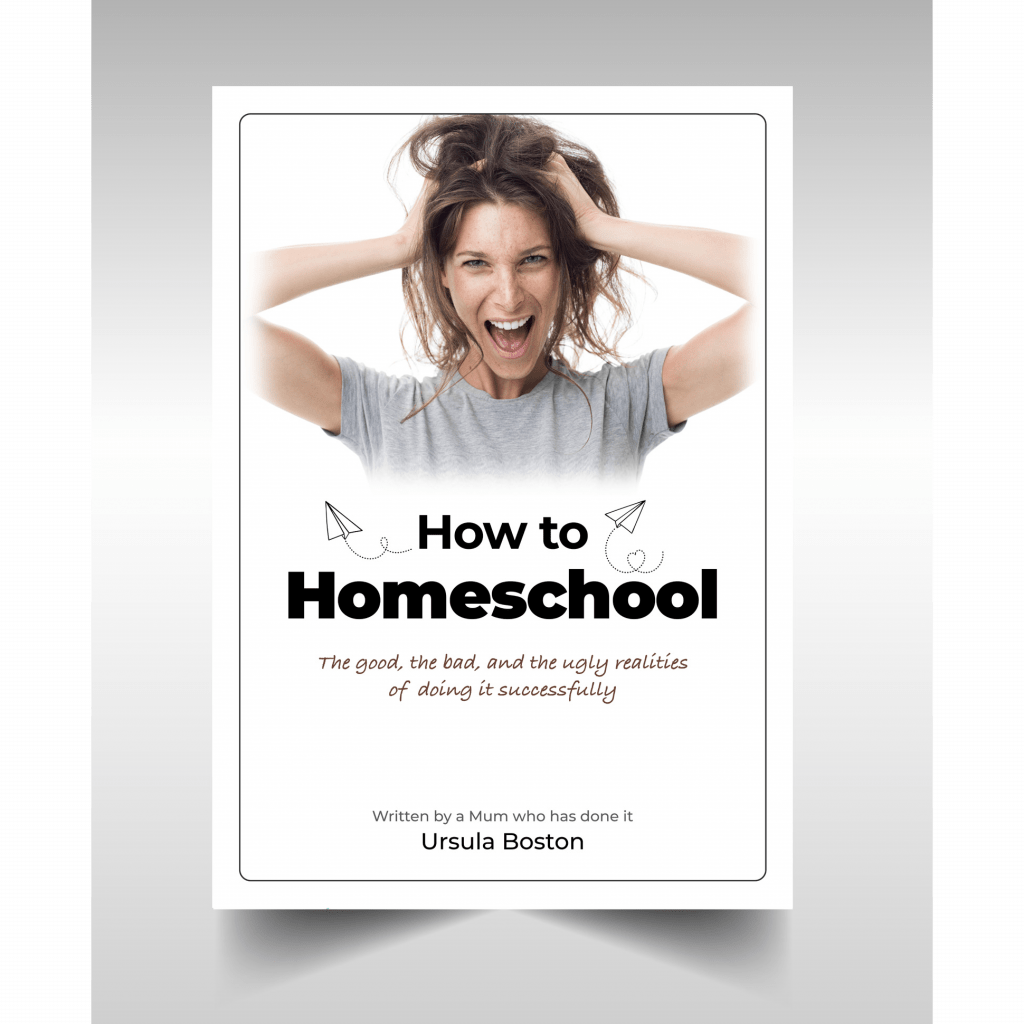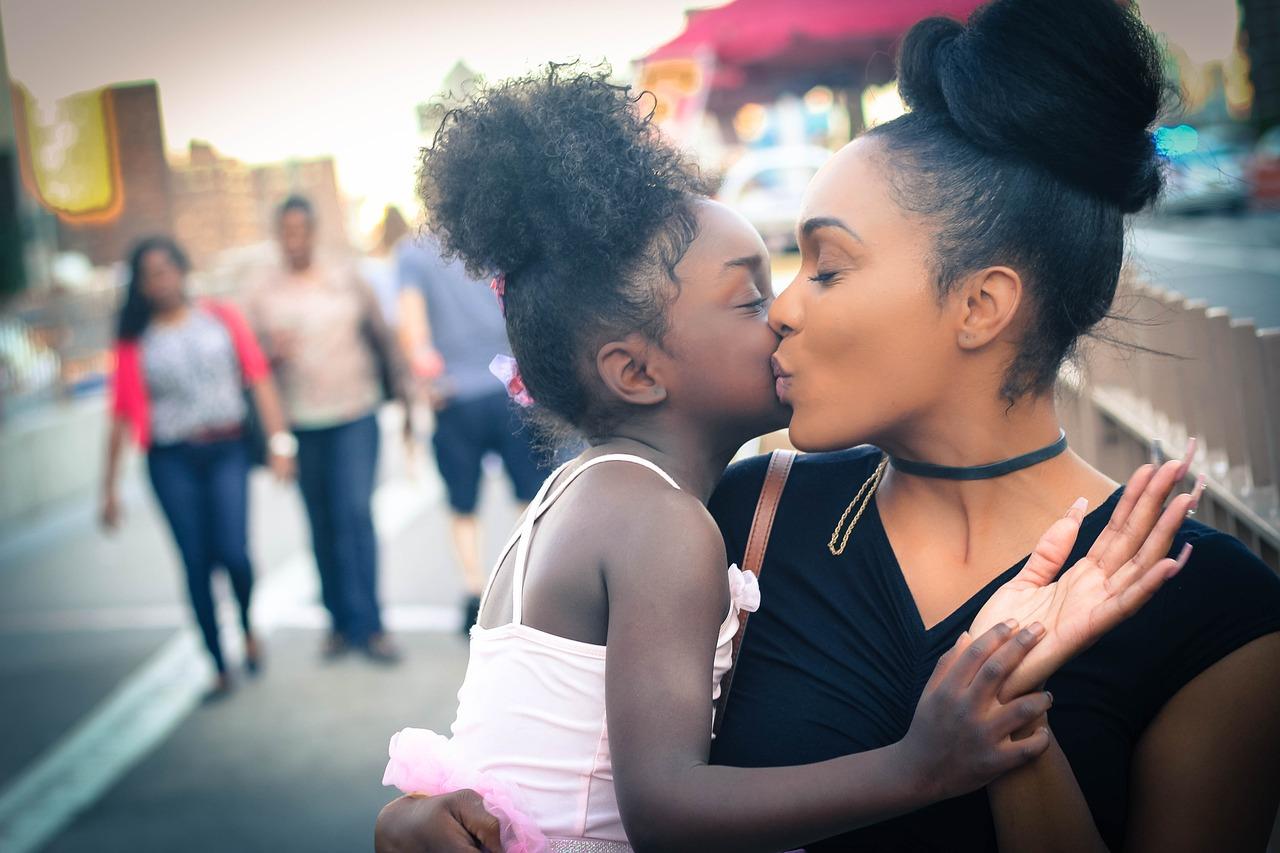For some parents, this question of whether parents should homeschool a child with anxiety, and whether can they do it, is a decision that itself is filled with anxiety.
In my personal opinion depending on the type and severity of the anxiety, I would conclude YES… A child with severe anxiety that impacts their daily function and well-being could be positively happier in a home environment rather than a school environment. And YES parents can do it !
Remembering that I am not a qualified Medical practitioner or Psychologist, however, I have a great understanding of the benefits of homeschooling children. I feel that under some circumstances homeschooling would be a wise alternative if you have a child with anxiety.
However, some may disagree.
While there are many benefits to homeschooling in general, it is important to consider all of the factors that may impact the child’s well-being particularly if they suffer from anxiety.
I will provide you with a basic understanding and look at the potential advantages as well as any potential negative effects so that you can make an informed decision about what is best for your family and your child about homeschooling and anxiety.
Homeschooling a child with Anxiety
Homeschooling can be an effective way to provide your child with the education they need while also addressing their anxiety. I believe in general, It can give them greater control over their environment allow them to learn at their own pace and limit the pressure placed upon them. All of this can be done in an environment that is supportive, comforting and under supervision.
Firstly, I think it is important to consider the type and severity of a child’s anxiety.
Types of anxiety and how to recognise it
- Social Anxiety – this can be generalised as children that are excessively self-conscious and may present with low self-esteem. Typically it is difficult for them to participate in class activities and socialize with other children in a school setting. This can also affect general life outside the classroom interacting with others.
- Selective anxiety – often children experience this type of anxiety in random circumstances like public speaking or talking with strangers.
- Generalized anxiety – Children who worry continuously about a wide range of things. They can often show signs of perfectionism or have performance-related anxiety.
- Obsessive/compulsive disorder – This is generally when a child tries to alleviate their anxiety by repeatedly performing certain tasks eg: hand washing, opening and closing doors, hand & finger twirling, and foot tapping.
Here are some tips for recognizing anxiety in kids at school
- Excessive stomach aches and trips to the first aid room at school
- Refusing to go to school and having bad attendance
- Dislike speaking in front of peers
- Disruptive behaviour
- Overly self-critical
- Trouble making friends
- Inattention/restlessness
- Afraid of making mistakes or being judged
- Not participating in school events, swimming class, sports days etc
- Excessive worrying about tests/ reports/ assignments way before they are due
Should a parent or teacher notice some of these behaviours consistently, I would advise that they seek professional advice from a therapist or doctor. This is essential so an informed decision can be made about the needs of the child and the type of education style that will positively benefit their well-being both mentally, emotionally and physically

When making such an important decision about homeschooling, parents should consider their own ability to provide a structured learning environment. Homeschooling requires dedication, organization, and the ability to motivate your child to learn. You will need to create lesson plans, assess their progress and be available for regular support and guidance. This is particularly important with an anxious child.
It is also critical to ensure that the curriculum you choose fits your child’s interests, needs, and abilities along with teaching the mandatory subjects that are required in your state or territory.
Finally, it is important to create a positive environment for learning. This means setting up a comfortable workspace, establishing consistent routines, and providing positive encouragement.
Homeschooling Is More Relaxed For An Anxious Child
In my opinion, I do believe that all children, even adults have some degree of anxiety in their lives. Managing this anxiety and having the tools and techniques to regulate emotions is critical in healing.
One step in healing may be to reduce a traditional school school environment. Here are a few benefits :
Benefits for the child. They may be more relaxed and get the individualized attention they need, which can help them feel more secure. It can also allow them to work at their own pace, giving them the freedom to take breaks when needed and not feel rushed or overwhelmed.
Removing the stress of a typical classroom setting can be very beneficial for anxious children, as they’ll be able to focus more on their learning without the distractions or pressures of a traditional school environment.
Homeschooling allows freedom and flexibility to seek regular professional help from Therapists and Practitioners without constantly removing them from the classroom for scheduled visits.
I have witnessed children suffering from severe and constant bullying from their peers at school all because their anxiety and behavioural patterns become ” seen”. This just exacerbates the anxiety to a new level and becomes a hindrance to emotional healing.
Benefits for the parent. Homeschool allows parents to tailor lessons to their child’s interests and abilities for a more engaging learning experience.
The anxious child can be monitored more closely and behaviours can be recognised earlier and addressed promptly.
The pressure of intense situations like exams, presentations, public speaking etc can be removed and instead, a one-on-one environment can be implemented.
- It’s important to note that homeschooling may not be the right solution for every anxious child. It’s always best to discuss all available options with a professional who can help you decide what will work best for your child’s specific needs.
Interactive Learning Activities for Anxious Homeschoolers
When homeschooling an anxious child, interactive learning activities can provide an effective way to keep the student engaged while providing a safe and nurturing learning environment.
Creating activities that allow the student to learn at their own pace, can help reduce the child’s anxiety and help them reach their full potential.
To get started with interactive learning activities for anxious homeschoolers, start by brainstorming topics that interest your child. This could be anything from reading to building models or playing board games.
Once you have some ideas in mind, create activities that involve those interests while also incorporating elements of learning, such as reading and writing.
For example, if your child likes to build models, create a project where they can construct their own model ship or aeroplane. As they build the model, have them read aloud instructions and write down measurements needed for the project.

This way, they are not only enjoying an activity they like, but they are also learning something along the way.
Another great interactive activity is playing board games. Board games can be tailored to fit any subject and age range, providing a fun and interactive way to learn.
Classic board games such as Monopoly or Scrabble can easily be adapted with questions or assignments related to the subject matter. Or, you could create a customized game specific to the interests of your child.
The goal of interactive learning activities for anxious homeschoolers is to provide an enjoyable and safe environment where the student can learn at their own pace.
Socialization Strategies for Homeschool Kids with Anxiety
If your child is living with anxiety, it can be hard for them to create and maintain social connections with other kids in a traditional school setting.
Fear not! There are plenty of strategies you can use to help ensure that your homeschooled kid has fulfilling social experiences and remains comfortable. Here are some ideas:
- Join a homeschool group: Look for organized groups in your area that provide activities and field trips specifically for homeschoolers. This can give your child the opportunity to meet other children with similar backgrounds, interests, and needs.
- Participate in extracurricular activities: Encourage your child to join an activity such as a sports team, martial arts class, or music group. These activities can help your child build friendships and further develop skills in an environment where they feel comfortable.
- Start a homeschool club: If you’re unable to find a suitable organized activity for your child, why not start one yourself? Gather like-minded parents and children who are interested in similar activities, and encourage them to meet up regularly. This can be an excellent way for your child to get out of the house and socialize with other homeschoolers.
- Utilize online resources: Technology provides a great way for kids with anxiety to connect with others without having to leave the comfort of their own homes. There are many online forums where homeschoolers can communicate and share experiences.
Cultivating Skills in Homeschooled Children with Anxiety Disorders
Some ideas for cultivating skills include encouraging open communication, allowing for creative expression, providing structure, developing problem-solving skills, teaching mindfulness, and building emotional resilience.
Open communication is essential for helping children with anxiety work through their worries and feel seen and heard. Parents should create an environment in which children feel comfortable talking about their feelings and expressing themselves openly and freely without fear of judgment. This can be done through activities like journaling, art projects, reading books aloud together, or simply having open conversations about the day’s events.
Creative expression is another way to help children with anxiety disorders express their feelings and explore the world around them. Art projects, music lessons, or hands-on activities can give kids the space they need to express themselves. And by showing an interest in their creative endeavours, parents can foster a sense of pride and accomplishment in their children.
The structure is an important part of managing anxiety in children. Establishing a routine that both parents and kids can stick to helps provide security and predictability, which are essential for overcoming anxiety. Setting aside time each day for schoolwork, along with regular schedules for meals, bedtime, and other activities will help ensure consistency and organization.
Problem-solving skills are also important for kids with anxiety disorders. Teaching them how to break down complex issues into smaller steps can help them feel more in control and better prepared to face challenges. Parents should encourage their children to be creative in their problem-solving, as this is often the best way to foster resilience in the face of adversity.
Mindfulness is a great way for children with anxiety to reduce stress and gain control over their emotions. Deep breathing, yoga poses, or meditating on positive mantras are all ways that kids can learn how to manage their anxiety at the moment. Furthermore, these techniques can be used to develop an overall sense of inner peace and well-being.
Finally, teaching emotional resilience can help children with anxiety better manage their feelings and cope with stressful situations. Explaining to kids how emotions work, why they experience them, and how best to respond can help them build the skills that will allow them to overcome anxiety in the future.
Additionally, praising their successes and showing unconditional love and support can help instil a sense of self-confidence and resilience.
Reframing the Homeschool Experience for Anxious Students
When considering the decision to homeschool a child with anxiety, it is important to examine how the environment of home can be used to reduce stressors and provide an optimal educational experience for the child.
In this environment, students can access their curriculum with greater autonomy and control their own progress. They no longer need to worry about being in a potentially overwhelming classroom setting or feeling like they are competing with other children. Instead, they may be able to focus on their individual learning goals and work at their own pace.
In addition, just creating a learning environment that is calming for the child. Perhaps adding softer lighting, calming background music, room temperature control and a comfortable chair are just some simple ways to create a calm ambience.
Furthermore, the ability to create a flexible schedule can benefit children with anxiety. For example, the student may be able to take breaks when feeling overwhelmed or find ways to restructure their day to accommodate changes in mood and energy levels. Additionally, parents of anxious students need to ensure that they have access to specialized mental health services if needed.
FAQ’s
The following question will help you decide if homeschooling is the right choice for your child.
1. Is my child comfortable in a traditional classroom setting?
2. Does my child feel overwhelmed when exposed to large groups of people or too much stimulation?
3. How well does my child handle changes in routine and structure?
4. Does my child require more one-on-one attention?
5. Does my child struggle to focus in a traditional classroom setting?
6. Would my child benefit from more flexible learning opportunities?
7. Is the environment at the school conducive to helping my child manage their anxiety and other mental health issues?
8. Are there additional resources available to me that could make homeschooling more feasible?
9. Is my child able to connect with peers in other ways (online, through activities, etc.)?
10. Do I have the time and energy necessary to devote to homeschooling my child?
Ultimately, whether or not homeschooling is the right choice for your child with anxiety is a decision that only you can make.
Consider the above questions carefully and decide what is best for your family. With careful consideration and planning, homeschooling can be an effective way to help manage your child’s anxiety while also providing them with a safe learning environment.
With love and kindness
Ursula x
Eligible Government Payments
Did you know that if you decide to homeschool your depressed or anxious child you may be eligible for a government assistance payment? Mental health issues or a child with a disability or health concern are some of the criteria that fall under the AIC payment through Centrelink.
Please check out our link AIC PAYMENT for more info and contact details about this.
For a limited time – I’m offering massive discounts for any first-time purchase. Use code ( first20off ) at checkout.

How to Homeschool – The Good the Bad and the Ugly Realities of Doing it Successfully
This is the book I wrote to my younger self about doing it successfully. Take it from someone who has been there.
It is everything I have learned from my 18 years as a full-time educator, mum, and housewife.
It is everything you need to get started.

About The Author
My name is Ursula Boston. I’ve been educating my daughters as a proud homeschool mum for nearly 20 years. Alongside managing our household and small business from home.
If you want to learn how to do this from someone who has actually done it. Twice! I will show you HOW.







